Biology Department cautions college against in-person instruction this fall
June 15, 2020
This is the original formatted email sent from Macalester’s Biology Department to campus leaders on Monday, June 15. The department has shared this letter with senior members of the administration, chairs of elected campus-wide committees, chairs of academic departments, the Staff Advisory Council, MCSG student representatives and Biology majors.
Dear Macalester community,
As members of the Biology Department at Macalester College, we recognize these times of tumult, uncertainty, heartbreak and the powerful call to action against anti-Black racism that we are navigating as individuals and within our communities. Our thoughts are with each of you and your loved ones. We appreciate the enormity of the task underway to bring our Macalester community back together to our shared work of learning and teaching in Fall 2020. We acknowledge the challenges that potentially loom before us should our enrollment and tuition revenue take a severe blow, forcing the college to deplete the critical reserves we need to keep us financially viable. We need to keep doing our work. We recognize that it is important to let our students know that even in this upside-down world, Macalester is here for them to come home to.
However, we are increasingly troubled and unsettled by the emerging narrative of in-person teaching as a part of hybrid instruction for Fall 2020. Our primary concerns center around what we know of the virus so far, the continually changing landscape of who is ‘at risk’ for Covid-19, and our current understanding that Macalester faculty will not have autonomy over their decisions to teach remotely or in person. To our knowledge students have not yet been surveyed about their willingness/comfort to return to campus in person in the Fall.
SARS-Cov2 is a highly contagious virus with a reproductive rate greater than one such that one infected person transmits the virus to more than one person. Asymptomatic infected individuals can spread the virus for days, sometimes weeks. “Herd immunity,” in which (60-70% of the population has been exposed or infected,) is still months, possibly years, away. Even with the swift global effort underway to develop a vaccine, the soonest we might possibly have one available is likely mid/late 2021. While the CDC and MDH identify older adults and those with underlying illnesses as at-risk for developing complications from Covid-19 (the disease caused by SARS-Cov2), they do so with the caveat that anyone can get seriously ill. Healthy individuals in their 30s and 40s have died from Covid-related strokes; children and teenagers have developed multi-system inflammatory complications. Moreover, following the SARS-1 epidemic a decade ago, we learned that many infected individuals who recovered from acute coronavirus disease later developed serious chronic illnesses; that may well turn out to be the case with Covid-19. Unsurprisingly, Indigenous people and communities of color in the United States are bearing the brunt of the pandemic; the Covid-related death rate in Black people is more than twice that of White people. Given all of this, it seems both imprudent and unethical to require medical waivers based on CDC guidelines in order to be able to teach and learn remotely. Everyone should have the autonomy over their own bodies to choose whether or not they return to campus if they can, in fact, be accommodated safely.
So far, we have received no details about how CDC and MDH-recommended health and safety measures to contain the virus will be implemented on our campus. Last week, former President Brian Rosenberg was quoted in an op-ed in the New York Times as saying that compact, close-knit, residential campuses such as ours are “not far behind cruise ships and assisted-living facilities” as ideal theaters of contagion as far as Covid-19 is concerned. To bring students, faculty and staff safely back on campus will require monitoring, testing, contact tracing, isolating the exposed/infected, and controlling traffic in buildings and hallways in academic buildings, residential spaces and offices. Students will need to be housed in single rooms, or in rooms large enough to allow physical distancing, and classes of more than 10 will have to meet in shifts with faculty and students interacting through masks and face shields with a significant portion of their brains tuned toward harm reduction, sanitation protocols, and avoiding physical contact. All of these precautions will require enormous resources, time and effort, and seem nearly impossible to implement given the nature of our campus. And if we do manage to implement them to any substantive extent, our academic experience will be a far cry from the energy and connectivity of the in-person instruction and campus life that we and our students know and love.
Many among us — students, faculty, staff — are already caring for, and grieving those affected by and lost to Covid-19, while also processing and responding to the local and global civil unrest and uprising. This trauma will be present in our classrooms and on our campus for years to come. Coming back to an unfamiliar physically distant campus with fear of contagion will fuel our individual and collective anxieties. As the coronavirus surges in the fall and winter as several epidemiological models predict, many of us will get sick and spread the virus. Some of us will become seriously ill. Some of us will die. These burdens will likely be disproportionately borne by those already fighting structural and societal violence. Our capacity to provide support for students’ mental health needs was stretched thin before the pandemic, and these demands will likely increase exponentially in the context of the multiple on-going crises we are navigating.
All of this suggests that any in-person instruction that might happen this fall will look very different from our usual practices. It will also be unavoidably contingent upon whatever public health regulations happen to be in place at the time and may need to be abandoned at any point in the semester. Finally, faculty who teach in-person will very likely have students in their courses who are unable to be on campus for a variety of reasons — closed borders, health issues, family needs. We are in fact being told that we should actually plan to teach our courses entirely remotely but then come to campus in the fall to teach portions of them in-person only to students able to attend. These students will necessarily have a different experience from their classmates on campus due to circumstances beyond their control, and faculty will have to prepare in-person as well as remote versions of their course activities and assignments to teach students scattered across time zones.
With these risks of infection, mental health concerns and inequity of student experiences in mind, we suggest that there is a strong case to be made for a fully remote teaching and learning experience in the Fall. Alongside public health considerations, this may also be an effective and equitable pedagogical strategy. Rather than trying to build two different versions of each class they teach, faculty and staff will be able to focus on building creative, inclusive, coherent online learning experiences for our students. In our department and beyond, we see faculty dedicating their precious summer months to focused, intense capacity building for remote instruction that preserves the best and most essential components of a Macalester education. We ourselves are immersed in this work and heartened by the energy our colleagues on campus and across the country are bringing to it. While we would all prefer to teach and learn in the ways familiar to us, we are showing up to educate and equip ourselves for necessary changes. Removing the dangerous and ambiguous possibility of in-person instruction in the fall will allow us to do this work with more focus and better results. Deposits made by over 600 admitted first-year students demonstrate a powerful show of support for our college and the work we do. These newest members of our community are trusting us to do right by them. We should leverage our considerable resources in support of our staff, faculty and students, by creating the best remote teaching and learning experience we possibly can, and make every effort to shelter those students on campus who need to be at Macalester in order to have the resources, space, and time for their intellectual work.
Four years ago, Macalester alumna and Zimbabwean-American actor and playwright Danai Gurira ’01 spoke at Commencement about her Macalester moment — “That singular moment of realization and self-discovery that ..may define who you go on to become and what you go on to contribute.” That moment took place for Danai when she was away from campus studying away in South Africa. Telling the story of how, later in life, she leaned into the “Macalester inside” her, Danai said:
“You may not be able to control your environment, but you can always control your atmosphere, placing you in a zone no one can disrupt. Fear and anxiety will come to most of us, but the key is to refuse to let it stop you. Courage, as they say, isn’t about being fearless, it’s about doing it despite the fear.”
Her words seem prescient in this moment. In this time of tumult, it is important to trust each other’s choices about our own bodies and to trust our work and our purpose enough to believe that we will weather this storm together, and that our community will stand by us. It is scary and complicated to dedicate ourselves to teaching and learning, and taking care of our community remotely in Fall 2020. It is deeply sad to be away from each other at a time of crisis. But it just might be the safest, smartest, most courageous, and most compassionate thing we can do.
Sincerely,
The Biology Department
*Edit 6/16: An earlier version of this letter used the word “Blacks” to refer to Black people. The department stated that this was a clear and offensive oversight, and requested that this be changed.
*Edit 6/17: The biology department has issued the following apology statement:
We write on behalf of the Biology Department. We apologize to the Black students, staff, faculty, alumni, and to the larger community for our use of the racist and dehumanizing term “Blacks” in our letter to the community re: Covid-19 preparations. We are deeply sorry for compounding the anti-Black racism that has existed for far too long. We recognize that using this language reflects our own shortcomings and those of our discipline, and highlights the work we must do to engage with racism and confront anti-Blackness in our department, in our discipline, in our college, and in our communities. Going forward, we will continue to contemplate and examine our own deep biases, work hard, and take specific actions to correct them. We would also like to express our gratitude to those who spoke out. Please continue to hold us—and Macalester overall— accountable for making required structural and personal changes. We are grateful to the Mac Weekly for allowing us to correct the offensive language. Our letter was intended to voice our common concerns for the health and safety of all students, faculty and staff and to offer constructive ideas for safe and equitable teaching and learning that could reduce the risks of the pandemic in our communities. We hope that as we acknowledge and learn from our mistakes, we can continue to listen, communicate, deliberate, and mobilize our collective voices and efforts to take care of each other in the face of the formidable challenges before us.
Sincerely, The Biology Department





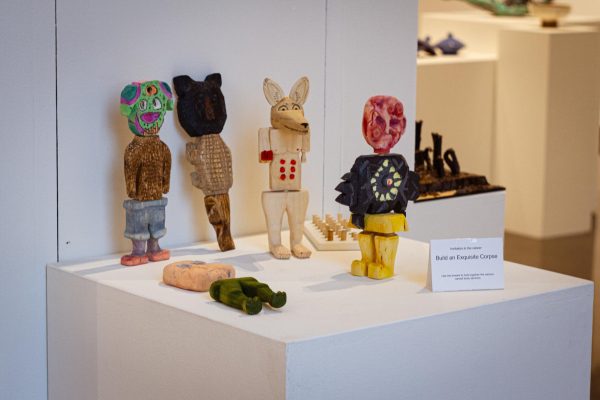

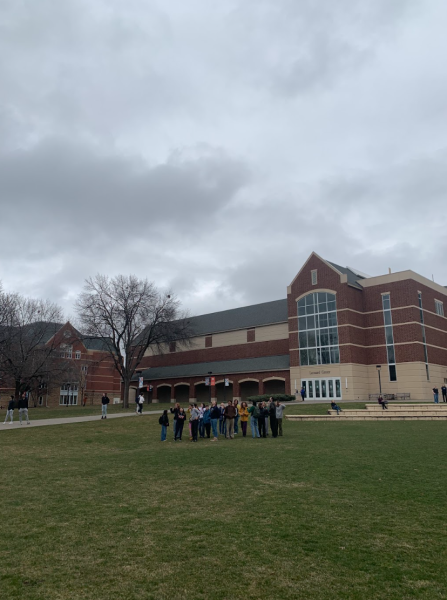

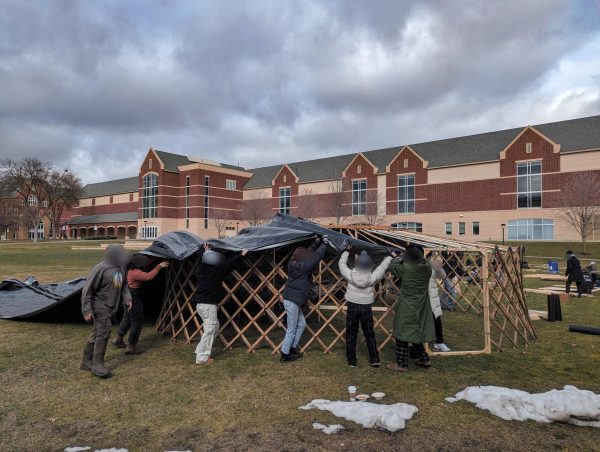




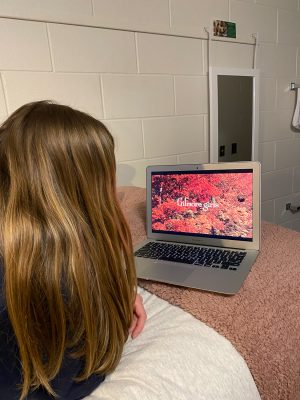


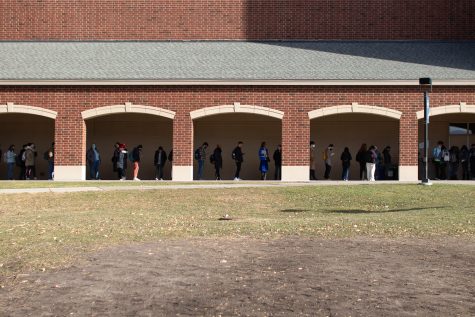

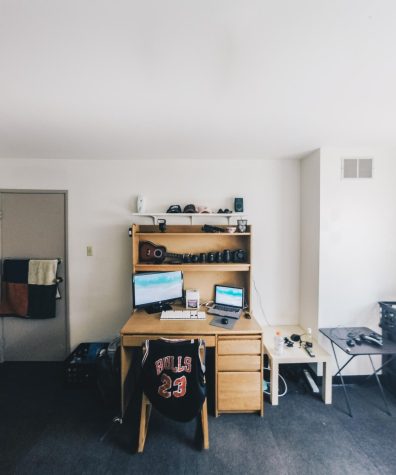
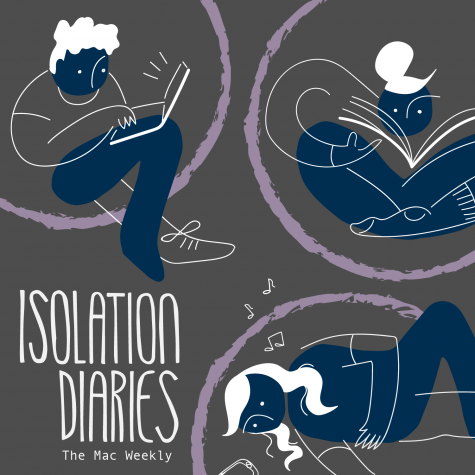
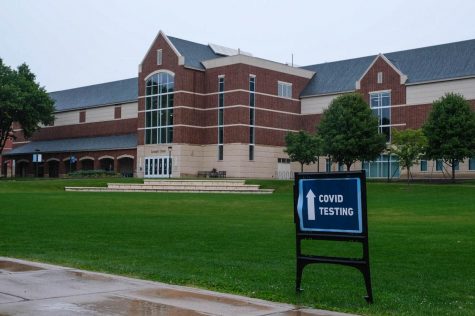
Jon • Jun 19, 2020 at 1:22 pm
Mac needs to cut the naive crap.
They can’t possibly believe that students’ first instinct when coming back inperson is not to throw parties and hangout with their friends. Be real.
We can’t monitor the whole student body 24/7 and we know that a disease with this infection rate doesn’t take much to go sicko mode.
Would returning to campus please a lot of people in addition to the school’s wallet? No duh yeah. But if you think that mitigating our individual woes is worth the death of anybody then that is just plain ol’ selfish. Seriously, Shame.
Mac would sure be doing their part of serving the community by ignoring the pleas of the biology department on a public health crisis and I’m sure the biology department who are full of scientists who use reason and observable events are just fear mongering for some reason.
I MEAN COME ONNNNNN
Althea Sircar, formerly Visiting Instructor of Political Science • Jun 18, 2020 at 5:26 pm
While usage and terminology is in flux as well as dependent on context, dialect, and so forth, there are a number of quite thoughtful conversations happening around the internet right now about the most liberatory ways to refer to persons of African descent in the US. I’d refer readers to this recent tweet by Kimberlé Crenshaw and the thread it refers to for more on the ways journalists, writers, and scholars are thinking about these things, as well as the incomplete ways that dictionaries, style guides, and other authorities try to adjudicate these matters (https://twitter.com/sandylocks/status/1273657838934487041). There are inadequacies and nuances that inhere within any language we choose to represent reality—”people first” language (“people of African descent”) captures something different than “Black Americans”, while “African-Americans” does yet a third set of things. Some terms, like “Afro-American”, are dated but may not substantively differ in what they communicate within their context from more contemporary phraseology. We might keep in mind that it’s possible to use the “appropriate” words while betraying the intentions of those who coined them. If one can be anti-Black while using anti-racist language, might one also be anti-racist while using subpar language? I don’t think there’s an obvious answer to this question but part of me really does hope that anti-racism is helped by liberatory language but not reliant upon it. It seems to me that we should take the lead of Black siblings here, regardless, although there are bound to be knowledge-and-proximity gaps at an institution as white as Macalester. While I hope non-Black folks get better at using un-problematic language, I also think Macalester won’t get better until things change structurally. Furthermore, even as egregious language has no place in a caring, respectful community, any thoughtful collectivity will also have to grapple with real differences between invested parties about terminology (like, for instance, lively contemporary debates over the use of the terms BIPOC or Latinx, see for instance: https://www.nytimes.com/article/what-is-bipoc.html?action=click&module=Editors%20Picks&pgtype=Homepage and https://www.motherjones.com/media/2019/06/digging-into-the-messy-history-of-latinx-helped-me-embrace-my-complex-identity/ among many others).
The substance of the biology dept letter does a lot to advocate for the real, lived lives of folks in this institution and I’m grateful for that on behalf of the vulnerable folks I know—and really, for everyone! Biology (like all academic disciplines) has its problematic corners and histories, but the expertise and support of scientists is also helpful and necessary as we advocate for justice during a pandemic! Truly, Covid-19 makes all of us vulnerable but it’s the worst for those among us without structural power or the means to protect ourselves. It strikes me that this should stay in focus: how are we using our language to make the world meaningfully safer for those most harmed by racism, disease, poverty, greed, exploitation, and oppression, and how can language help us as we take actions to dismantle the power structures that keep the status quo going? How can those who study language and those who study bugs (whether crawly or viral) be in community with and learn from Black folks’ (and Indigenous folks’ and…..) lived experiences and concerns? Language alone neither saves nor condemns us—it’s how we act in concert with how we speak and how we listen, that matters.
Arjun Guneratne, Professor of Anthropology • Jun 17, 2020 at 10:29 pm
Far from being either dehumanizing or gross, the Biology department’s letter is one of the most humane and thoughtful I have ever seen emerge from a group of either faculty or students at Macalester. In circulating this letter and pointing out the dangers that members of the Macalester community face should we return to campus in the Fall, in the face of a pandemic that has taken the lives of 120,000 Americans and is likely to take tens of thousands more, the Biology Department has done all of us a signal service. They deserve our gratitude for their sober, scientifically-grounded, well-thought out and humanely-informed critique of the college’s actions. The outrage these self-appointed language police feel about racism should be directed, not at the Biology Department, which has done nothing to deserve it, but at the disproportionate numbers of black and brown people who have died in this pandemic. There is nothing objectionable about the sentence “the Covid-related death rate in Blacks is more than twice that of Whites”. It would certainly have been objectionable if the Biology department had used the phrase “the Blacks” a la Trump; that is a distancing and othering move, which is why people object to that kind of usage. But there is nothing inappropriate about the way “Blacks” is used in this context, any more than there is in the reference to “Whites”. Far from being an othering move, the statement invites us to consider the tragedy and inequitable treatment that is the lot of those of our fellow Americans who are people of color contrasted with those who are white. If all these indignant commentators had taken the trouble to go to the Guardian article that is linked to this statement, they would have seen that the author uses the terms African-American, entire black population, black residents, and finally the phrase “the disparity in death rate between blacks and whites” to refer to black people.
Rather than being distracted by these self-righteous critiques, we need to stay focused on the central point of the letter: re-opening in the Fall will make a number of us sick, and quite possibly, some of us will die. On Brian Rosenberg’s authority, college campuses aren’t designed for social distancing. Given that death by Covid-19 has overtaken so many of our fellows across the U.S., why would we believe that Macalester is immune to similar tragedies?
As I said, the Biology Department deserves our thanks. Thank you, colleagues! You guys are doing a great job. Keep the caravan moving forward.
Abby • Jun 16, 2020 at 10:47 pm
Biology Department, what concrete actions will you be taking to address this dehumanization and make sure students do not perpetuate it in the future?
Joel Stegner • Jun 16, 2020 at 10:04 pm
Bigotry can kill, harm and give offense. In a multicultural world, if people are going to get along, they need to understand the history of words and their official and underlying meanings. White Americans are generally ignorant of people from other places and cultures. That means a high risk of giving offense everywhere they go. And the offense goes in all directions. Want to offend a biologist? Call COVID-19 the flu. People want their expertise and experience respected and valued.
As with spell checking, perhaps we need a “offense check” for language and phrases that disrespect others, with the “offense checks” suggesting a more respectful word. Our language comes from many sources and words are constantly developed to describe what is going on that current words don’t fit. Those with great language skills have an easier time keeping up with the changes. The words of science can be mysterious, but they are generally emotionally neutral, not disrespectful.
Once, curse words were taboo, but the ethnic, religous and racial slurs were tolerated. This has flipped. Part of life-long learning is unlearning old offensive language by calling it out so people can do better. Sort of like the Mac students who uncovered the very mixed legacy of our first college president. The hateful words and thoughts of the 19th century are still with us.
The US is not doing all the right things to minimize pandemic risk and our people want quick, easy solutions where none exist. There are risks with every choice – but health and life must take top priority. Some decisions can be made now. Does Mac require its community to be vaccinated for common diseases? Vaccine refusniks without immunity impose unnecessary risks on others. Mac is a residential school where a lot of learning happens collaboratively. Collaborative learning can happen online, but part of the greatness of small colleges is that students can work, study, do extracurriculars and have fun today. Not easily replaced.
So can what factors drive shutting down versus opening up and how you deal with students who need to go into quarantine? Should everyone who visits campus be maske, have their temperature taken and turned away if they show symptoms? Are some of the precautions for COVID-19 extended to other communicable diseases? It is common with low wage employees to have no sick time. Will anyone still expected to be in class however they are feeling? Do they get a few excuse-free sick days and grace on late assignments. This begs for a policy manual – not a 10,000 foot description, but ground level where students and staff live.
I attended during dangerous times – where students were sent off to war and non-violent protesters were being killed by police. We also had our classes ended early one year, so hundreds could participate in the March on Washington. Sometimes what what is necessary needs to be done, and smart people will figure out how to work around it an provide a fine four-year school experience. This is another one of those times.
Conor • Jun 16, 2020 at 6:03 pm
Have to say, even though it’s been changed, using “Blacks” in a letter which ostensibly engaged with systemic racism was… not a good look. I appreciate faculty publicly critiquing the administration’s COVID-19 response, but the Biology department needs to be careful and aware of how the language it uses can feed into a pattern of dehumanization. Especially in a field that for a /very/ long time aided and abetted the pseudoscience of eugenics. I’m wondering if the genetics class has a unit on debunking eugenics? Or if cell biology discusses the history and treatment of Henrietta Lacks? Perhaps with a more regular curricular awareness of systemic racism that pervades the sciences (and how careless language is deeply linked with that) on the part of both students and faculty in the biology department, this comments section would be focusing more on the necessary discussion of COVID-19 preparedness the letter highlights.
Addie • Jun 16, 2020 at 4:28 pm
The use of “Blacks” in this letter represents a much deeper problem of how race and racism is talked about in the Biology department. Where’s the Biology/American Studies cross-listed class? Didn’t we just have Dorothy Roberts come speak at Macalester?
Nora • Jun 16, 2020 at 4:25 pm
While I appreciate that the biology department acknowledges that the use of the word “Blacks” was offensive and unacceptable, it warrants more than an edit and a note saying that it was an oversight. It warrants an apology to Black members of the community.
Kennedy • Jun 16, 2020 at 3:23 pm
Please do not use “blacks” to refer to black people. This shouldn’t be something we have to comment in 2020.
Cordelia • Jun 16, 2020 at 2:43 pm
Using the word “Blacks” to describe people who consistently face racism and discrimination particularly in the medical community (and in STEM fields such as Biology) is not the way to communicate your point. This language is dehumanizing and unacceptable. Do better.
Jenna • Jun 16, 2020 at 1:19 pm
Using “Blacks” to describe people? No, just no.
Sam • Jun 16, 2020 at 1:09 pm
It’s hard to read this for its intended purpose when you use the term “Blacks.” Surely the Macalester Biology department knows scientific terminology has been used to codify racist language. They should know that “Blacks” is just another example of that long, dehumanizing tradition. But, clearly, the Biology department does not. Immediately change the terminology used in this post, apologize to the Macalester black community and commit to educating yourselves and your students about the history of racism within the natural sciences (and everywhere).
Anni Clark • Jun 16, 2020 at 12:43 pm
For people who open their letter acknowledging the crisis of anti-black racism, you’d think they’d know better than to use Blacks to describe people like it’s not 2020. What a hilarious and tragic display of the type of un-self-critical neoliberalism Macalester pretends to be above.
Aubrey • Jun 16, 2020 at 12:29 pm
Disappointed in the biology’s referral to Black PEOPLE as “Blacks”. This language is dehumanizing towards Black people as stated in other comments. The biology dept. owes Black students and members of the Macalester community an apology citing their wrongdoing as well as why it was wrong, taking responsibility for this, acknowledging the need for their own further education on how to address Black people in discourse, and a clear explanation for what steps they will take towards further educating themselves.
Rex Desso • Jun 15, 2020 at 11:15 pm
This is over the top and we should be in class starting in September. Fear fueled article. Majority of students will be taking a leave of absence if the school decides to do remote learning from what I’ve heard.
Nauhar Rana • Jun 15, 2020 at 9:48 pm
Brilliantly written! God bless you all!! Our daughter – Saniya proudly graduated from Mac last year and we will always remain part of the Mac family forever! Sunita and Nauhar Rana
Alex • Jun 15, 2020 at 9:04 pm
Biology department we absolutely do not use the word “Blacks” to refer to black people anymore — it’s gross and dehumanizing.
Maria Peterson • Jun 15, 2020 at 9:02 pm
If you’re trying to talk about the very real effects of medical/environmental racism on people in our community, you definitely should NOT use the term “Blacks” to describe those people!! (PEOPLE being the operative word.) It doesn’t matter that you’ve capitalized it – there’s no way for that word to be used by people who are not Black to describe people who are and have it be acceptable.